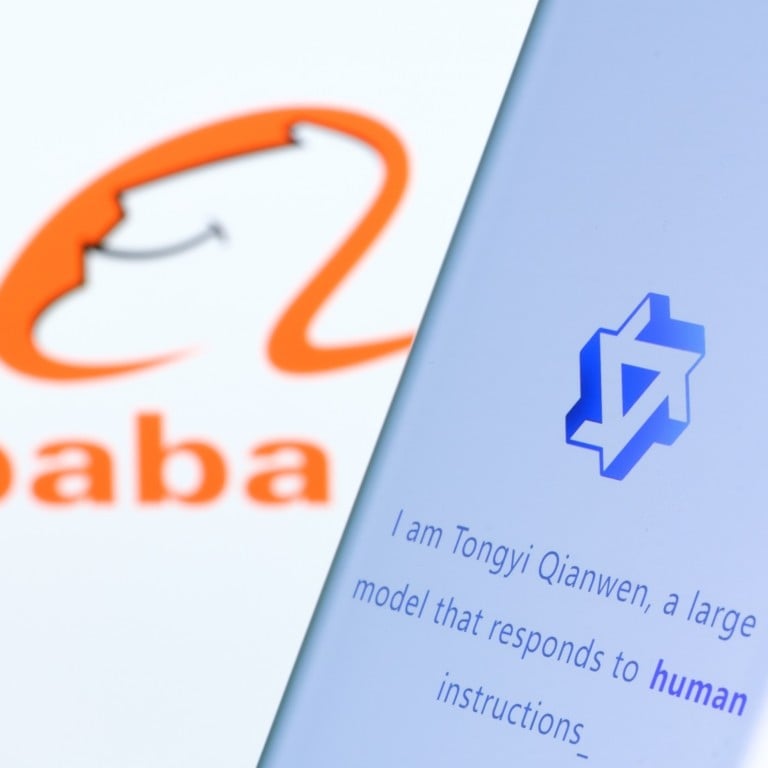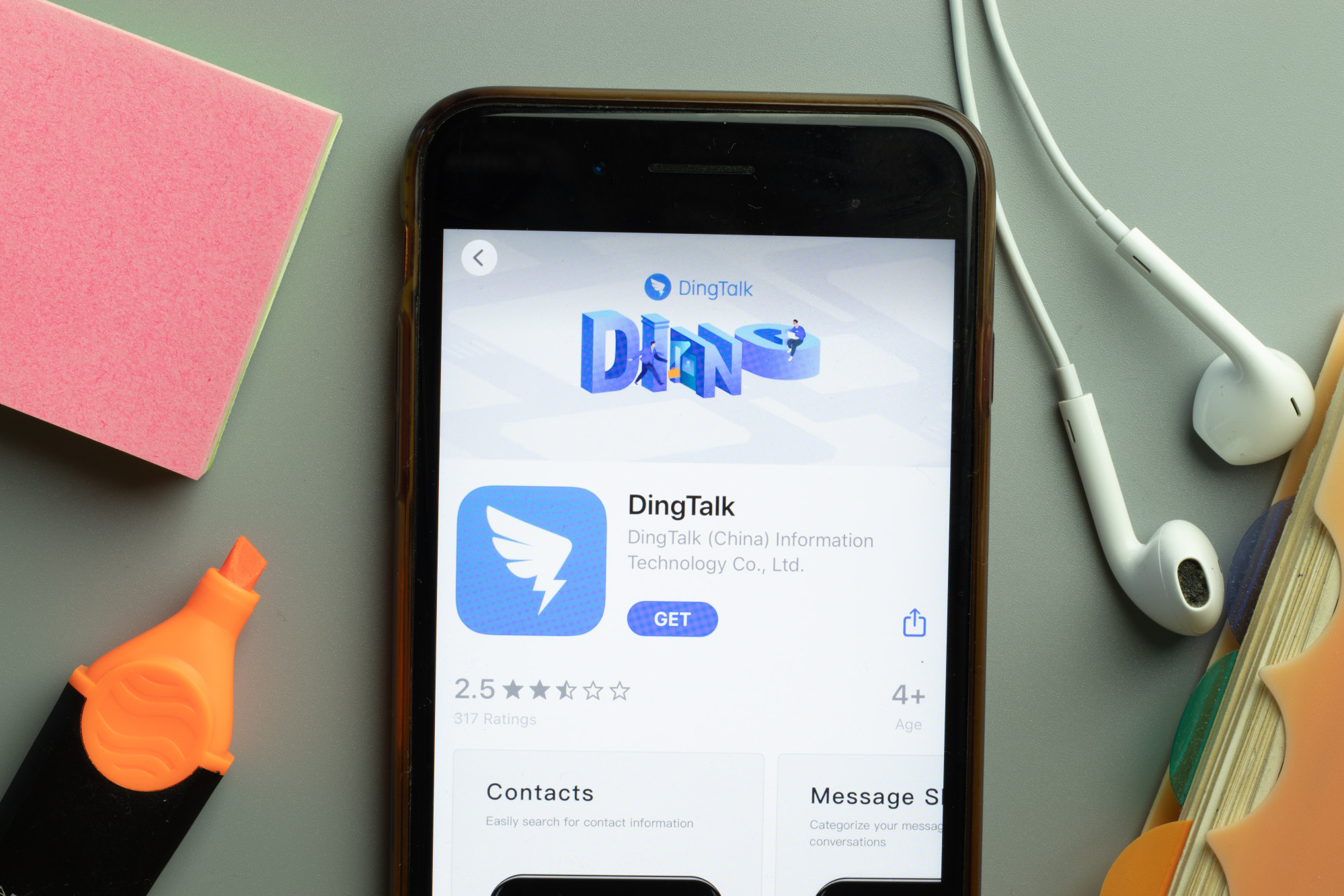
Alibaba embeds own ChatGPT-style service to workplace communications app DingTalk, heating up competition in China’s AI tools market
- Powered by Alibaba’s own large language model Tongyi Qianwen, DingTalk is now able to compose articles and generate posts based on simple user prompts
- This latest initiative underscores how Chinese technology firms are stepping up their development of competitive generative AI tools
The app can also summarise previous conversations in a group chat when a new member is added to the thread. In addition, it can help make conversations livelier by generating stickers based on text prompts.

While Alibaba has been doing research on LLMs for a number of years, the live demonstration on Tuesday of the enhanced DingTalk app showed that the company’s efforts in this field are still at an early stage. LLMs refer to a type of AI that uses deep-learning techniques and massively large data to understand, summarise, generate and predict new content.
When prompted for a sticker based on futangdaohuo, the Chinese idiom for going through difficulties that literally translates as treading on hot water and fire, DingTalk initially generated a drawing of a head containing boiling soup. DingTalk president Ye asked the platform to redo the sticker twice, which yielded unsatisfactory results. He later said the app “will get better with more training”.
Although ChatGPT creator OpenAI is a leading player in this field, Ye said Alibaba has its “unique advantages, including cloud computing and diverse application scenarios”. For example, around half of more than 2,000 first-class hospitals in China are using DingTalk for work collaboration, he said.
Alibaba launches its own ChatGPT rival, following Baidu’s chatbot

